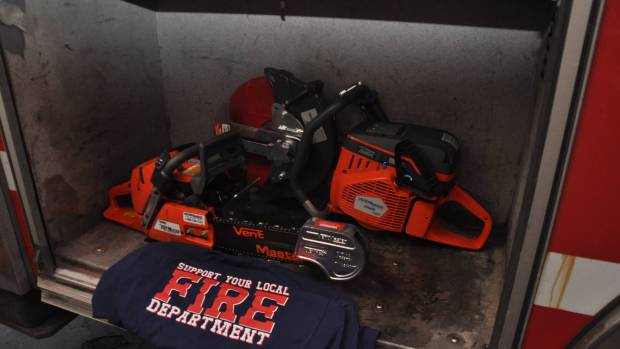Bob Marbourg: The man who tells all of Washington where to go.
More on Bob Marbourg from WTOP’s Adam Tuss
Thirty-years-ago today Bob Marbourg opened a microphone at WTOP Radio and hasn’t stopped talking since. He talks about the topic he knows best and is most passionate about: traffic.
First, let me make my bias clear in what I am about to write. I am a big Bob Marbourg fan and a friend of 31-years. Bob spends each afternoon on the radio with my wife, Hillary Howard.

Having been a radio traffic reporter in Washington, DC, and worked with Bob in two different jobs, I have a great deal of respect for the people who call traffic reporting their profession. This town is lucky to have very good people on the radio who are committed to this vital and often overlooked part of broadcasting. Some of them, like Bob, are my friends. We all, including Bob, owe a great deal of debt to the people who went down this path before us, like the late Walt Starling and Captain Dan Rosensen.
But to me, Bob is unique. He is truly one of the rare people you meet in your life who is a master at their craft.
Much like a rookie firefighter learning his response area, Bob, a New York native and Vietnam vet, conducted his own street drills from his first days coming to Washington in the 1970s. Obviously, Bob’s first due is a little larger than the average firefighter’s. He hasn’t stopped this discovery of the highways, landmarks, traffic signals, road construction projects and potholes. It continues each and every day of his life.
When Bob moved from an airplane to a studio with scanners, computers, phones and maps, he adapted with more hard work. Bob visited the locations of traffic cameras, making sure he was clear where they were positioned and what they see. But there has long been more than just an intense work ethic involved with Bob.
All of us who have to travel the clogged roads in and around the Nation’s Capital (number two in traffic congestion in the country), owe Bob a big thank you. He, following in the foot steps of Walt and Dan, is an advocate for the motorist.
When he sees traffic problems being ignored, Bob is not shy about bringing it to the attention of those in charge. Sometimes he is forced to do it via the microphone in front of him. Other times it is a quiet buttonholing of a traffic agency head or police chief.
There are two important areas where I believe Bob has had great impact and little recognition for his efforts. From his earliest days, Bob would be all over construction crews that didn’t clear out of the roadway for the rush hour or stop work as a get-away holiday weekend approached. It is has been common practice for a while now that road construction contracts prohibit these practices and bring penalties to contractors for such violations. Bob has helped keep everyone honest on this front.
The second area is regionalization. The late Rich Adams helped push fire and EMS in the Washington area to do a better job of talking and working with each other through his TV editorials on Channel 9. Part of this was spurred by the response to the Air Florida crash at the 14th Street Bridge on January 13, 1982. Much as our friend Rich deserves credit for stronger mutual aid, Bob’s similar work on the traffic and transportation front is also due recognition. This is because Bob has long had one of the best overall views of how the various pieces fit together and often recognized the problems before anyone else.
One of the first things you will notice if you watch Bob work is that there is little, if anything, he writes down. It is all in his head. He knows it that well.
Besides working with and competing with Bob at various times, I have listened to him regularly for all of these years. I only recall once or twice that I was able to catch him saying the wrong name of a road or something similar. When you think of the amount of material he puts out, that is an amazing record. We all wish we could be that accurate.
As anyone who knows Bob or listens to his reports on the radio will tell you, he is all business when that microphone is on. Because of this, it has, at times, rubbed some people he has worked with, and for, the wrong way (he is lucky to have current management that truly values the treasure they have on the air each weekday). Bob is this way because he feels it’s his job to quickly transmit important information, using concise language, to people who have to make snap decisions about which way to go. He doesn’t want to disappoint a driver by delaying that information when they need it the most.
Bob has always been this way. It started even before he took over the reporting duties at WTOP from Steve Thompson, who had been seriously injured when the traffic reporting plane ended up in someone’s back yard in Vienna on November 15, 1979.
What were unusual traffic tie ups when when I first worked with Bob, are now the norm (even outside of rush hour). To me, that means it is even more important to have experience like Bob’s to interpret the various information that comes into the traffic center.
As always, traffic conditions can change very quickly. This makes traffic reporting more of an art than a science. If that’s the case, Bob Marbourg is our Rembrandt.







